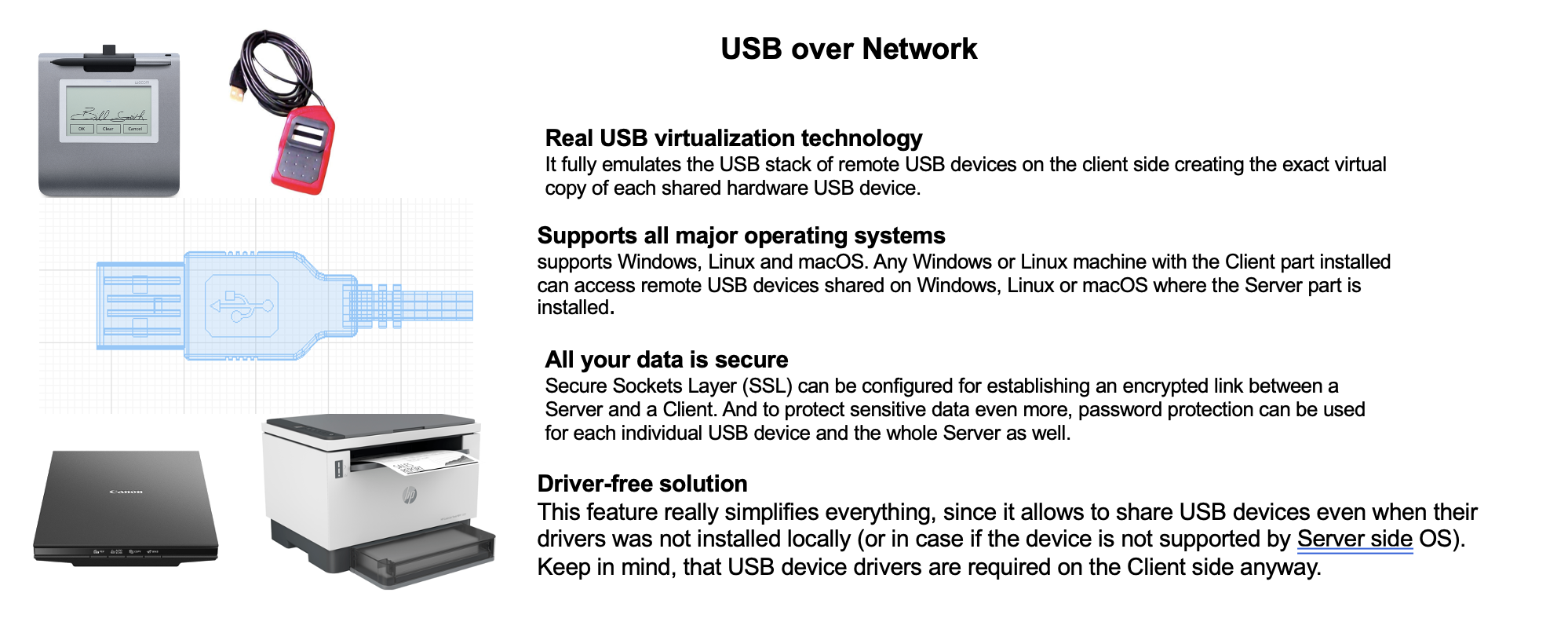
USB Virtualization
USB virtualization refers to the technology or process that allows USB devices to be used over a network or in a virtual machine environment. This means that a USB device plugged into one computer can be accessed by another computer on the network, or by a virtual machine, as if the device were connected directly to that computer.
Key Features
- Zero configuration is required.
- Works with any virtual machines.
- Mixed 32 and 64-bit environment.
- Single-user and multi-user environments support.
| Real USB virtualization technology | It fully emulates the USB stack of remote USB devices on the client side creating the exact virtual copy of each shared hardware USB device. |
| Supports all major operating systems | Supports Windows, Linux and macOS. Any Windows or Linux machine with the Client part installed can access remote USB devices shared on Windows, Linux or macOS where the Server part is installed |
| All your data is secure | Secure Sockets Layer (SSL) can be configured for establishing an encrypted link between a Server and a Client. And to protect sensitive data even more, password protection can be used for each individual USB device and the whole Server as well. |
| Driver-free solution | This feature really simplifies everything, since it allows to share USB devices even when their drivers was not installed locally (or in case if the device is not supported by Server side OS). Keep in mind, that USB device drivers are required on the Client side anyway. |






